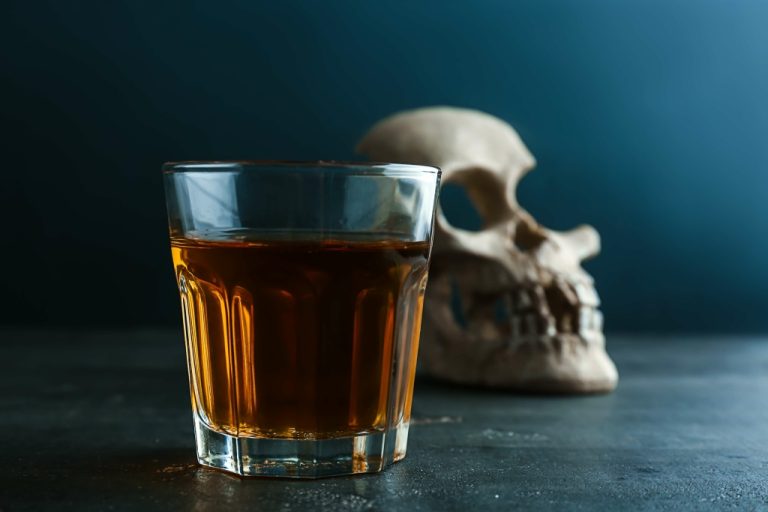A higher dose (5 drinks or more) can cause uncontrolled urination, alcohol poisoning, and breathing problems. There’s nothing wrong with celebrating with an alcoholic drink here and there. Your body naturally metabolizes alcohol and removes the toxins. However, long-term or excessive use can slow down that process and could damage your heart, liver, kidneys, and gut health. Eating a meal before drinking can influence the absorption of alcohol. Food, overall, helps dilute alcohol and slows the emptying of the stomach into the small intestine.
- However, the affect that one drink will have on the percentage of alcohol in your blood can vary greatly according to a complex group of personal factors.
- It may be easier on your rehabilitation to skip visits with “drinking buddies” or avoid gatherings with a focus on drinking.
- A doctor can evaluate your overall health and alcohol abuse history to help you determine how likely it is that you’ll experience symptoms.
If you want to minimize your chances of getting drunk, eat something with your drink and alternate between alcohol and a glass of water. So after one drink, your BAC should be back below the “drunk” threshold about 60 minutes after you drain your glass. But again, this is a generalization and could be different depending on the person and situation. Keeping track of what and how much a person drinks can help them recognize when they might be drinking too much.
Regular Workouts to Flush Out Alchohol From Your System
Caffeine is a stimulant that can make you feel more awake, even when you’re hungover. Factors — such as how much you weigh and whether you’ve eaten recently — can also influence how quickly your body absorbs alcohol. There are many tall tales and secret how to flush alcohol out of your system recipes out there that claim to have solved this problem. There’s nothing you can do to make yourself sober up more quickly. However, there are steps you can take to make the next morning easier or to avoid getting drunk in the first place.
- How frequently and how fast you drink, as well as the alcohol content in your beverage, can all influence how long ethanol stays in your system.
- It is crucial to prioritize safe drinking practices to allow your body sufficient time to metabolize alcohol properly.
- BetterHelp can connect you to an addiction and mental health counselor.
- Sleeping won’t physically remove alcohol from your system, however, it will give your body time to rest so it can effectively remove alcohol from your system.
- People who are daily or heavy drinkers may need medical support to quit.
- While certain techniques may help a person feel more awake, they will not eliminate alcohol from the blood more quickly and so will not lower the BAC level.
Moderate to heavy drinkers can also benefit from medical supervision in the acute withdrawal stage. A rare but very serious syndrome called delirium tremens can occur during alcohol withdrawal. Also known as DTs, an estimated 2% of people with alcohol use disorder and less than 1% of the general population experience them. When someone drinks alcohol for a prolonged period of time and then stops, the body reacts to its absence.
How To Flush Alcohol Out Your System Fast?
Someone who is quickly drinking one alcoholic drink after another is more likely to experience stronger effects in a shorter amount of time. Some people of East Asian descent lack the enzymes necessary to break down alcohol. This can cause a reaction that includes facial flushing, nausea, dizziness, rapid heart rate, and headache. In-patient programs provide round-the-clock care and support from the medical team.

If you make the decision to stop drinking daily and heavily, you will likely experience withdrawal symptoms. The time it takes to detox depends on a few factors, including how much you drink, how long you’ve been drinking, and whether you’ve experienced alcohol withdrawal before. If you’ve been drinking heavily and/or regularly, suddenly stopping or cutting back on alcohol can cause physical and psychological symptoms of withdrawal. The severity will depend on how long you’ve been using alcohol and how much you normally drink. The metabolism of alcohol has been studied in detail, but many factors determine how long alcohol shows up on a drug test and takes to be eliminated from your body. Depending on the type of test used as well as your age, body mass, genetics, sex, and overall health, alcohol is detectable from 10 hours to 90 days.
Urine vs. breath tests
While this may seem fairly obvious, it can be harder to do than you might think; especially if you drink regularly. Knowing what to expect during the alcohol detox process can help you feel more in control as withdrawal effects run their course. Adding lemon or lime to your water can also assist liver processing and reduce BAC (blood alcohol concentration). Genetic, environmental, and physical and mental health factors control alcohol metabolism and elevate your blood alcohol content — the percentage of alcohol in the blood. Urine tests can detect alcohol for between 12 hours and 24 hours. This length of time usually depends on how recently and how much you drank.
- When you start drinking on an empty stomach, your body absorbs the alcohol very quickly.
- Certain OTC medications and bland foods can help with a headache or an upset stomach.
- These fiber-rich foods can help regulate bowel movements and prevent constipation.
- You’re legally drunk once your BAC hits .08 percent or higher — the point at which it’s considered unsafe to drive.
- Help is at hand for those who need it on the challenging but ultimately rewarding road to sobriety via detoxification.
- On average, hair tests can help detect alcohol traces for up to 90 days after the last drink.